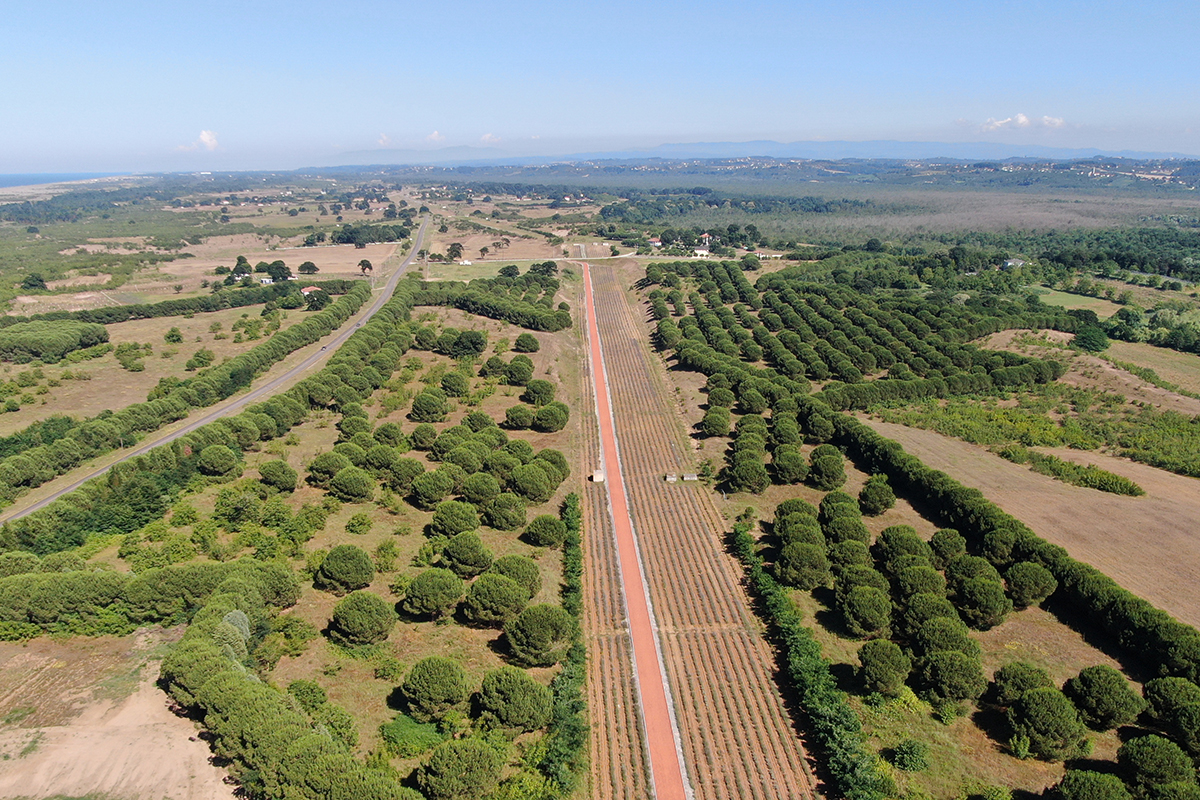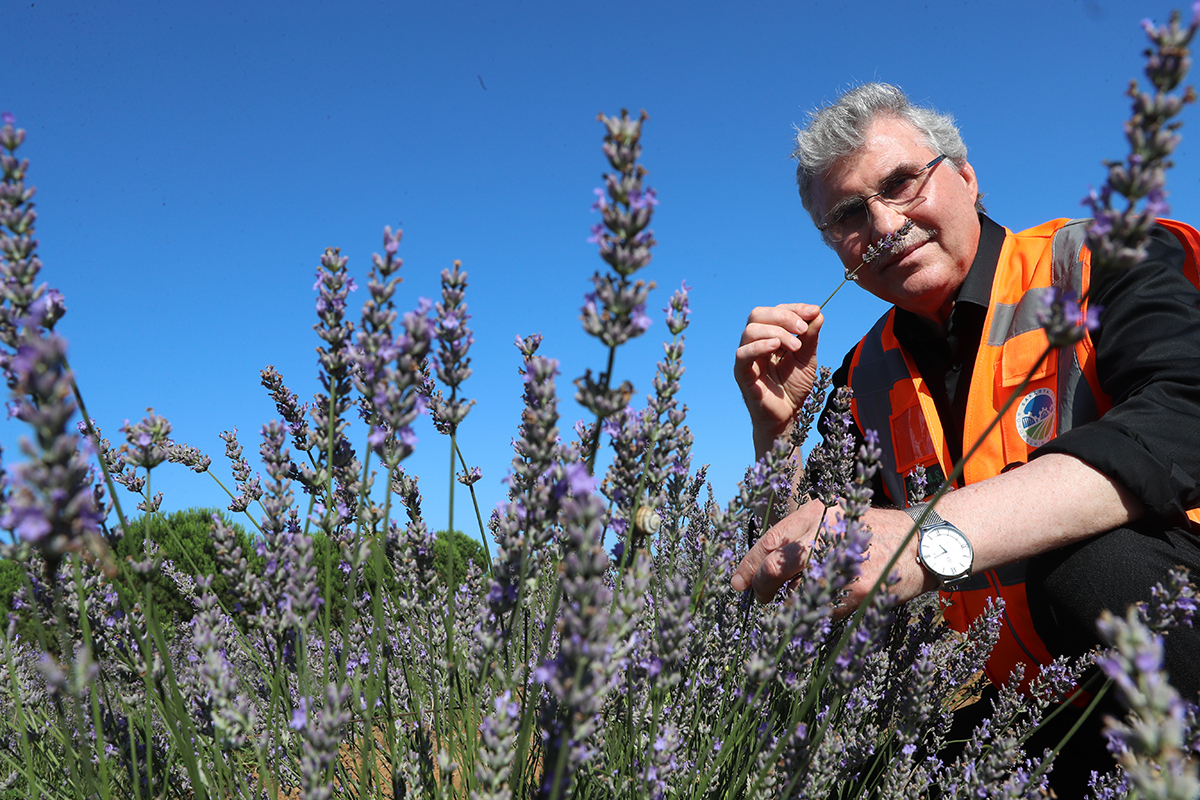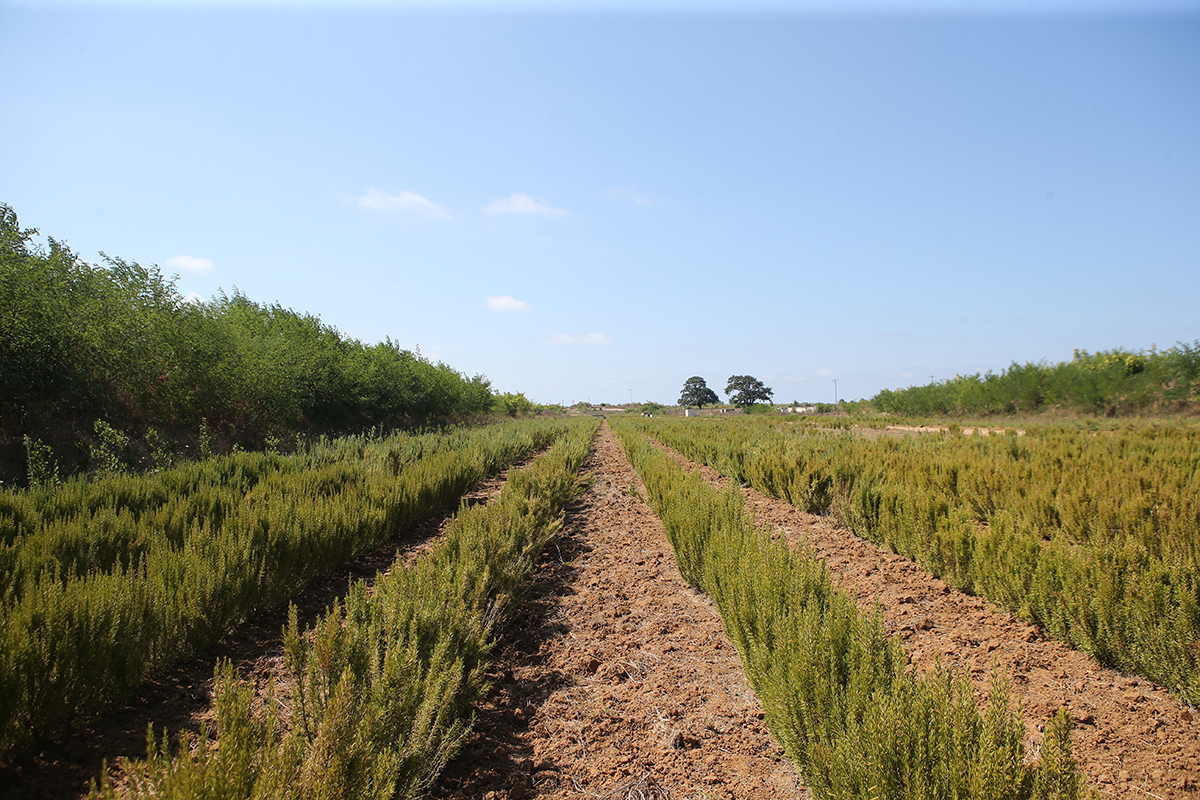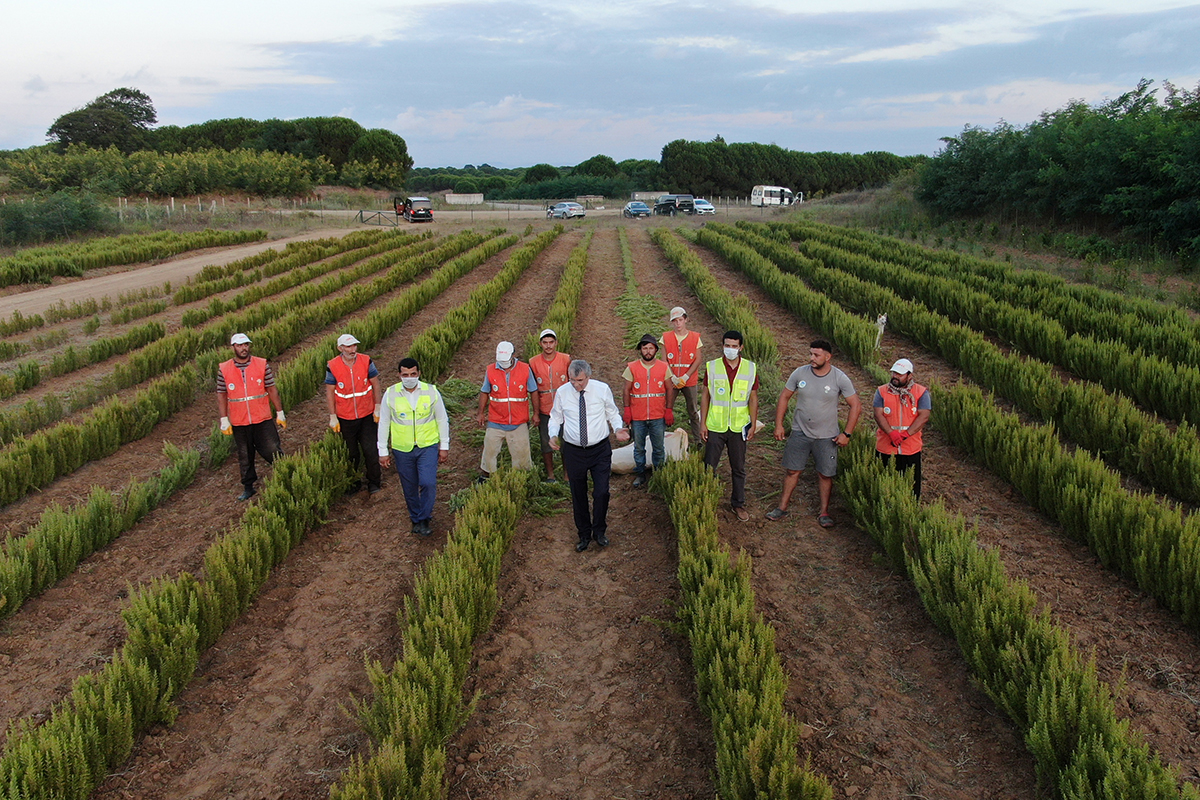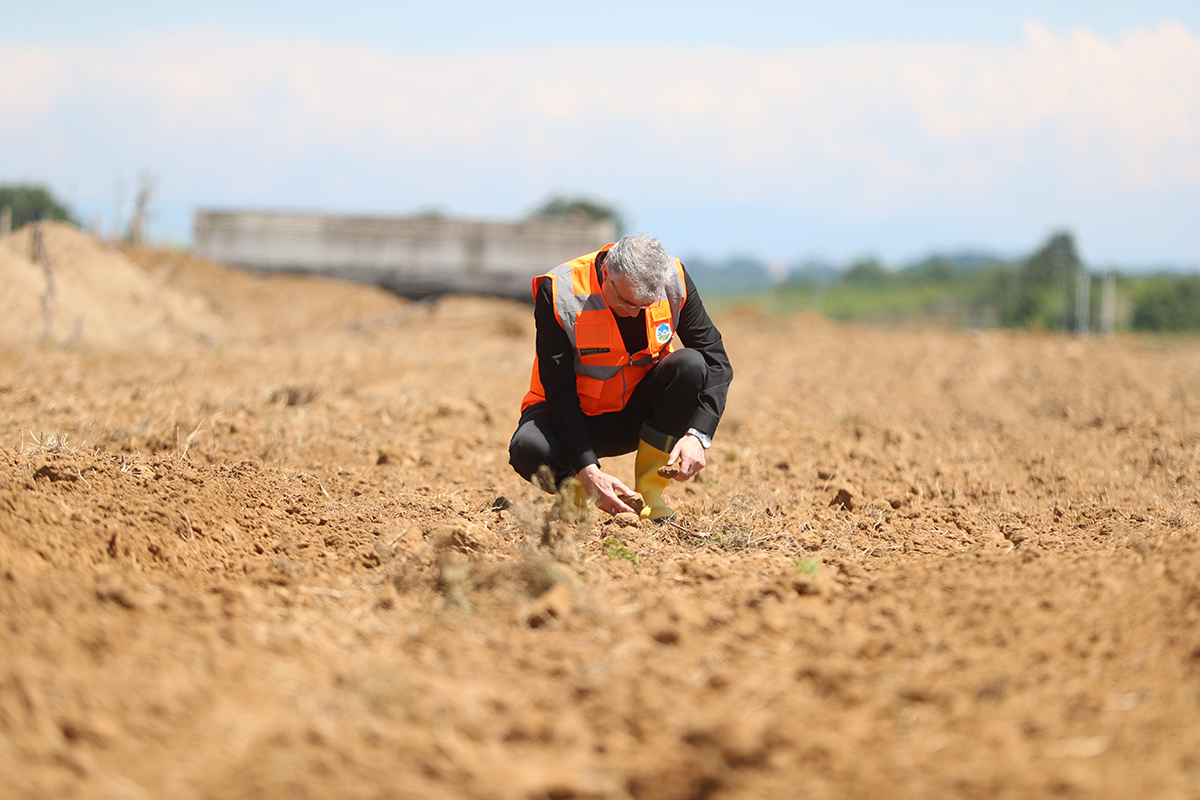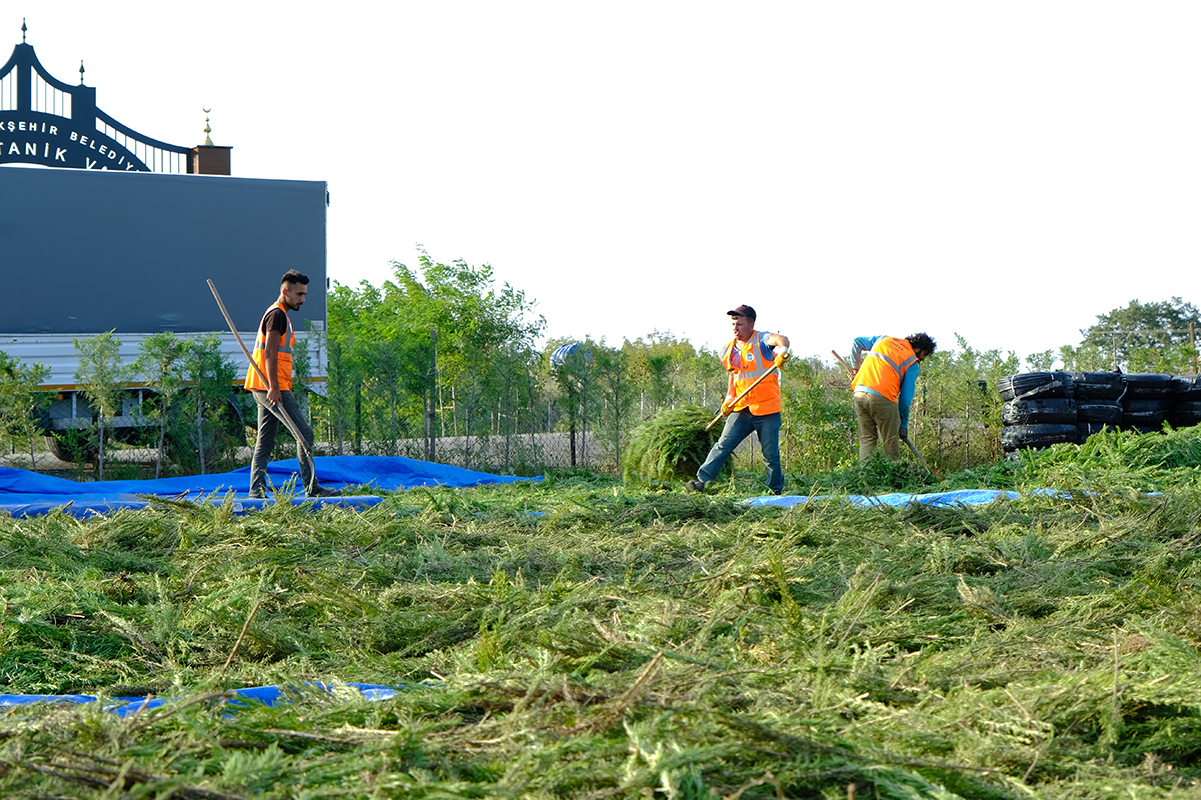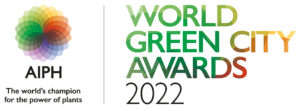Addressing the urban challenge
Breadth of the issue – How are the problem(s) that are being tackled by your initiative affecting citizens/local businesses or a significant component of the local wildlife?
Bees are one of the most important factors that ensure the fertilization of many plants and the pollination of agricultural plants. If the bees, which benefit ecology, diversity, and continuity, disappear, it may mean leading a very difficult life for humanity. Sakarya Botanic Valley project was carried out in order to leave a healthier and cleaner environment for every living thing in the world and to ensure the sustainability of biodiversity. Within the scope of this project, various aromatic plants are planted. Thanks to aromatic plants, a greener environment is obtained, and it provides a natural environment for many lives, especially bees. The pollination place of bees and the bee population are increasing. The increase in the bee population ensures the fertilization of many plants, the increase of greenery, and thus the protection of biodiversity. Thanks to the bees, it is aimed to increase the production of pure honey.
Depth of the issue – How seriously are the problems being tackled by your initiative impacting the life of the citizens/businesses/wildlife concerned?
Global Climate Change is the climate changes caused by global warming caused by greenhouse gases, the amount and density of which increase in the atmosphere as a result of human consumption of fossil fuels, industrial and agricultural activities. These climatic changes include drought, desertification, imbalances and deviations in precipitation, floods, typhoons, storms, tornadoes, etc. It manifests itself with symptoms such as increases in meteorological events. One of the causes of global climate change is the increase in the use of pesticides used in plant cultivation, the decrease in plant production, and the deterioration of the ecosystem as a result of adverse effects on natural life. Accordingly, the currently idle land in Sakarya is considered as a medicinal aromatic plant production area. By producing medicinal aromatic plants, it is aimed to increase bees and increase honey production at the same time. Along with the cultivation of medicinal and aromatic plants, the increasing bee population and honey production are aimed to be a pioneer for a natural and healthy life. The increase in medicinal aromatic plant breeding and bee population created in Sakarya Botanic Valley will raise awareness of the public in terms of environment and health, and they will be helped to get ideas and put this idea into practice. In this way, the increase in conscious and planned medicinal aromatic plant and beehive care will become widespread and a healthier environment will be created.
The power of plants and natural ecosystems to deliver benefits
How is the initiative shaped by scientific evidence of the potential for plants and natural ecosystems to deliver benefits?
Throughout history, people have started to use the therapeutic power of plants by recognizing them, and the usage areas of plants have diversified and multiplied in the course of time. Depending on the ecological position of our country, which is among the countries rich in biodiversity, medicinal and aromatic plants increase their importance with the economic contribution they provide in the regions where such diversity and endemic plant species are grown. In this project, the advantage of our region was initiated with the aim of encouraging beekeeping with the honey forest created by using medicinal and aromatic plants, obtaining products from the developed forest, and improving biological diversity as a result of this; In addition, it is a project that is expected to contribute to the regional economy by supporting eco-tourism with the recreation areas created within the project.
How has the city exploited the potential of plants and associated ecosystems to deliver more than one benefit?
Sakarya Botanic Valley project covers the part of Melen Transmission Line within the borders of Sakarya province Kocaali, Karasu and Kaynarca districts. The aim of this study are:
- To create a botanical valley of aromatic plants,
- To produce plants and use them to support beekeeping,
- Contributing to the regional economy through production
- To enable people who do or want to do beekeeping dispersedly and irregularly in the region to produce honey regularly and efficiently.
- To ensure that the project meets the public with the recreational areas to be created within the project.
- To ensure the development of nature tourism in the region.
Innovative and Collaborative Solution
How does the initiative show evidence of feasibility, including on-going financial and logistical support?
According to the World Health Organization report, about 21,000 of the 70,000 plants used for medicinal purposes around the world are used in the pharmaceutical industry. Only about 1,000 of the species that grow in our country and most of which are found naturally are used for medical purposes. Medicinal and Aromatic Plants are used extensively in the pharmaceutical and food industry, as well as in many industries such as chemistry, cosmetics, paint and so on.
After the 2nd World War, the sector was more directed towards the production of synthetic drugs. Globalization has led to worldwide recognition and increased demand for medicinal and aromatic plants used locally in some countries. Cultivation studies have accelerated in order to meet the increasing demand, protect biological diversity and obtain standard products.
Essential oils and aromatic extracts are used by the fragrance and flavour industry in the composition of perfumes, food additives, cleaning products, cosmetics, and medicines.
Especially in recent years, their use in aromatherapy has become widespread.3% of the world essential oil production is consumed by the pharmaceutical industry, 34% by soft drinks and 63% by the fragrance and flavour industry. World production amounts of essential oils are not known for certain, but it is estimated to be around 50 thousand tons. Works are still in progress. To re-establish the circular economic system and sustainability Sakarya Metropolitan Agac Works A.Ş. and Sakarya Metropolitan Greenhouse A.Ş. Companies were established.
In what ways is the initiative innovative?
Various natural events and interactions of different animals are effective in the protection of biodiversity, but undoubtedly the importance of bees is extremely large. The extinction of this lineage, which provides ecological diversity and continuity, may mean leading a very difficult life for humanity. For this reason, the implemented project aimed to create a living space for bees that provide pollination as well as the production of medicinal aromatic plants. In this way, medicinal aromatic plant breeding and beekeeping are provided to the whole world, especially to the people of Sakarya.
The municipality’s budget was used to finance the project.
A valley was created from various plants, and bees make honey from the flowers of the products obtained from here, offering a unique opportunity for our beekeepers. In addition, the products obtained were processed and brought into the economy. The reason for choosing this theme is to create a sustainable and harmonious city, dealing with life, wildlife, society, environment, nature, climate, and economy.
How is the initiative supported by collaborative working across disciplines and sectors?
The studies in the field are divided under the main headings of Crop Production, Beekeeping and Recreation Studies, and are carried out by the Environmental Protection and Control Department, Agricultural Services and Headman’s Affairs Department, Science Affairs Department Units within our Municipality.
Within the scope of Sakarya Botanic Valley Project by Sakarya Metropolitan Municipality, protocols were signed with Istanbul Water And Sewerage Administration (ISKI) and Sakarya Regional Directorate of Forestry to work in the field.
Agricultural Services in terms of supporting plant breeding and beekeeping; Environmental Protection in terms of landscape, Sakarya Metropolitan Arboriculture Inc. in terms of sales and marketing. and Sakarya Metropolitan Greenhouse Inc. Agricultural Engineers, architects and engineers working in these departments provide support to the studies.
How does the initiative demonstrate evidence of community support?
The project site is located in the forested areas of the Adapazarı Forestry Operations Directorate and the Karasu Forestry Operations Directorate, which are affiliated to the Sakarya Regional Forestry Directorate, and the areas obtained as a result of expropriation during the construction of the Melen Water Transmission Line by the General Directorate of State Hydraulic Works (DSI). The project consists of Kocaali district Gümüşoluk, Selahiye, Karşı, Yeni, Hızar Neighbourhoods; Kuyumcullu, Karasu, Aziziye, Incili, Kuzuluk, Manavpınarı, İhsaniye, Denizköy and Camitepe Neighbourhoods of Karasu District; It passes through the borders of Başoğlu, Ortaköy, Arifağa and Karaçalı Districts of Kaynarca District. Citizens living here provided support for the development of the project. The biggest reason for this is that they are the first target group to be socio-economically affected by the project.
Implementation, Impact and Replicability
How does the initiative demonstrate evidence of a track record of success against pursued objectives?
The flora of Turkey is close to the number of plants in the whole of Europe (approximately 12.000) with over 10.000 plant varieties and shows a great diversity and richness. Aromatic plants make up 1/3 of the flora, and about 3000 plants are endemic. The number of plants sold in herbalists is around 300, and about 70-100 plants are exported.
How has the initiative had a ripple effect beyond the scope of the initiative itself, thereby demonstrating a change in the city’s and/or its partners’ way of working with plants?
Medicinal and aromatic plants produced in Sakarya Botanical Valley arouse curiosity in the environment and become a source of ideas for many people in terms of production. The products provide financial gain to the local people within the scope of contracted production and appear as material and moral investment in nature. This project encourages people and enables the utilization of idle agricultural lands. With the increase in production and raising awareness of people, it will be possible to move away from industrial products such as pharmaceuticals and cosmetics made from chemical substances, and to turn to natural products thanks to the medicinal aromatic plants produced. In this way, conscious farmers are raised, and healthier products are left to new generations. Sakarya Metropolitan Arboriculture Inc. in Sakarya Botanical Valley. with greening, landscaping application, Beekeeping with Agricultural Services Unit, Sakarya Metropolitan Greenhouse Inc. The extracts of the grown products are extracted, and additive-free natural products are put into service. Thanks to Sakarya Botanic Valley, where beekeeping and aromatic plant cultivation are at the forefront, contribution is made to the green world where people can live comfortably.
How have other cities expressed interest in the initiative, or what potential does it have to interest other cities and be customised to their own circumstances?
Products (oil, tea, soap, cologne, etc.) obtained from medicinal aromatic plants produced in Sakarya Botanic Valley have been put into service under the name of Healing House. It has been observed that there is an intense interest in this sector since our natural products attract a lot of attention and demand in the fairs, we attend on behalf of Şifa Evi and Sakarya Metropolitan Municipality. Each city can produce medicinal aromatics in accordance with its own growing conditions, and with the contracted production model, it can create the potential to spread it first to its own provinces, then to their countries and even to the whole world.
Sustainability and Resilience
What efforts have been made to reduce the carbon footprint of the initiative?
Changing our eating habits comes first to reduce your carbon footprint. Certain amounts of carbon dioxide are released to the nature during the production phase of each consumed food, so we should prefer foods that cause less carbon emissions in production. Medicinal aromatic plants are among these plants. Local food and organic food also provide energy gain during production. One of the best ways to restore O2 to the environment is to protect and increase green areas. Thanks to the medicinal aromatic plants produced in an area of 60 km in Sakarya Botanical Valley and the increasing bee population, the green environment will increase and support the reduction of carbon footprint.
How have the anticipated impacts of climate change been considered?
Sakarya region is generally Black Sea climate and turns into Marmara climate towards the west. The temperature difference between summer and winter is not much. It is rainy in all seasons and there is no water shortage. The season is shifting to the Mediterranean climate. There will be no difference in temperature, and since it is a province with abundant water resources, there will be no water shortage. Since the drip irrigation method is used, the plant will take as much as it needs and the remaining water will be poured into the lake or the sea, so there will be no wastage of water. In addition, the plants planted are chosen from those who want less water.
What processes does the initiative include for it to be considerate in its use of soils and other natural resources?
The project area is located on fertile agricultural lands that are idle. No soil transfer was carried out. The area is wet. No additional irrigation is required. No pesticides are used in production. Not using pesticides does not harm the bees. Thus, biodiversity is protected.
Monitoring, Maintenance, and Management
How has the initiative been designed and implemented so that long-term needs for management and maintenance are reduced and can be met?
Many medicinal aromatic plants and beekeeping are carried out in Sakarya Botanic Valley, which is made by evaluating the idle place. With the contracted production model, it is aimed to increase the aromatic plants and to increase the green environment with bee breeding. The green environment, which people need most, will increase, and the idle areas will be utilized.
What protocols are in place to facilitate monitoring of results?
Within the scope of Sakarya Botanic Valley Project by Sakarya Metropolitan Municipality, the protocol with ISKI on the supply of raw water and land use on 21.06.2019 to work in the field, and the protocol with Sakarya Regional Directorate of Forestry on the maintenance, operation, and utilization of Sakarya Botanical Valley on 07.01.2020 has been made.
How has the initiative been enhanced in response to monitoring of results?
Although the medicinal and aromatic plants produced in Sakarya Botanical Valley and their consumption area is very wide, the most important areas of use are medicine, perfume, cosmetics, toothpaste, soap, sugar, soft drink industry and consumed as spice. With the discovery of new usage areas of medicinal aromatic plants and the increase in the demand for natural products, the use of these plants is increasing day by day, and it plays a role in improving the conditions in the development of agriculture and production. By multiplying the bees that will benefit from the honey extracts of the aromatic plants grown in Sakarya botanical valley, the bee population will increase and thus the plants will be fertilized more. Pollination of the flowers will increase. Thanks to these important roles of bees, the natural environment will increase, and a greener world will be left for new generations.
















